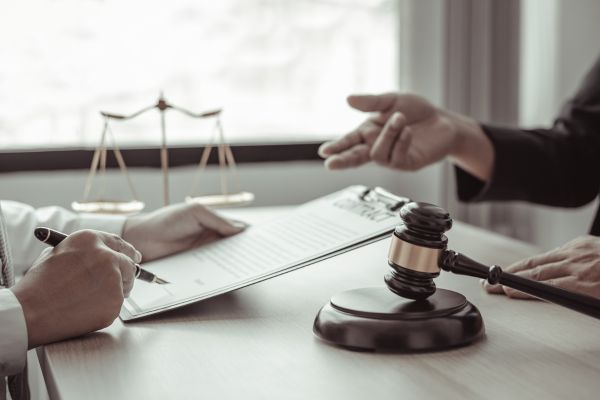“I am what I am, so take me as I am.”1 ~ CJI Dipak Mishra (2018)
Over eight million individuals have lived on the planet, as noted by the United Nations Population Fund’s (UNFPA) 2023 report, and of these, there are an estimated 10–20 percent minority communities. They include racial, ethnic, religious, and linguistic minorities, in addition to sexual and gender minorities like individuals from the LGBTQ+ population. A minority group is understood to be the one that is numerically less than the majority population in a state, but whose members are, nonetheless, citizens of the state. Notably, these groups are united by feelings of collective identity and solidarity that work subtly or openly and that persist on the grounds of their desire to maintain special cultural practices, traditions, languages, or religions. The acknowledgment of equality of rights for these groups is thus not merely a question of justice but also a critical mechanism to break down entrenched hierarchies. In equalizing the playing field, equality eliminates the inferiority that minorities are perceived to be carrying while at the same time unsettling majority groups’ dominance that has long organized political, social, and cultural institutions.
The United Nations General Assembly’s Resolution 70/1, which established the foundation for the Sustainable Development Goals (SDGs), is especially applicable here. Its philosophic promise that “no one will be left behind” is a global commitment to place the interests of the most vulnerable, poor, and marginalized at the forefront. Incorporation of this precept emphasizes that sustainable development is impossible without the eradicating inequality at its very source. For sexual and gender minorities, this commitment holds deep meaning. LGBTQ+ populations have been relegated to the edges of societies, excluded from visibility in policymaking, and subjected to disproportionate levels of discrimination and violence. Therefore, the SDG agenda emphasizes the imperative of specific inclusion, acknowledging that without intentional effort to integrate minorities, overall development objectives will be incomplete and unequal.
Around the world, LGBTQ+ activists are still agitating for basic human rights, equal legal protection, and freedom from violence. Their fight illustrates the durability of inequalities but also the determination of marginalized communities in the face of systemic exclusion. Nevertheless, the global mosaic of LGBTQ+ rights is extremely unequal. In certain nations, legalization of same-sex marriage, administrative recognition of transgender status, and more comprehensive anti-discrimination laws represent advance. In others, though, these advances are countered with resistance, hostility, and reactionary legislation aimed at maintaining heteronormative and patriarchal positions. This polarization of rights is a reflection of the constant struggle between progressive efforts toward equality and conservative attempts to maintain exclusionary status quos.
The year 2023 has been particularly notable for emphasizing this duality. On the one hand, historic wins have been won by courts, parliamentary reforms, and even referendums, reasserting the principle that equality must be universal. As an example, in the Netherlands, a constitutional amendment was enacted to expressly forbid discrimination on the basis of sexual orientation and disability. This was an important step in widening Article 1 of the Dutch Constitution, which previously asserted equality but now offers a more definitive legal basis to safeguard oppressed groups. These events are not merely symbolic gestures, but also functional measures that can be summoned in judicial and administrative contexts to guarantee accountability.
Meanwhile, severe setbacks also dominated the world in 2023. Uganda passed draconian legislation mandating life-threatening punishment for LGBTQ+ people, demonstrating how state authority can be used to strengthen stigma and criminalization. In the United States, a number of state legislatures proposed limiting legislation against LGBTQ+ communities, causing widespread controversy regarding the dismantling of civil rights. Likewise, Russia enacted new legislation limiting gender reassignment surgeries, casting it as a response to so-called “Western anti-family ideology.” In fact, this law is an example of state-trumped-up transphobia, enshrining discrimination in the name of cultural preservation. These examples highlight that while there is advance in certain jurisdictions, others retreat and become hostile, bringing about a patchwork of legal facts for LGBTQ+ individuals globally.
International human rights treaties, especially the Universal Declaration of Human Rights (UDHR), established a clear normative standard against such discriminatory actions. The UDHR formulates the natural relationship between human rights and human dignity, which is immediately eroded by discriminatory legislation. Articles 1, 2, 3, 5, 6, 7, and 16 are particularly pertinent in this context. Together, they protect principles of equality, freedom, right to life, protection from cruelty, recognition in the eyes of the law, equal protection in the law, and the right to marry. When legislation criminalizes or prohibits LGBTQ+ identities, they disrespect not one but several of these underlying human rights principles, undermining the universality and indivisibility of rights.
Marriage equality is a central but unfinished aspect of the overall struggle for LGBTQ+ rights. Members of these groups experience threats every day from social exclusion through open discrimination in employment, housing, and healthcare. In India, 2023 was a turning but disappointing point when the Supreme Court refused to acknowledge marriages between same-sex couples. This ruling was generally seen as a big blow both locally and abroad, with expectations that the five-judge Constitution Bench would interpret the Special Marriage Act (SMA) more expansively. The SMA, intended to permit marriage between “any two persons,” seemed to give a legal basis for the recognition of same-sex marriages. But the Court did not go so far as to grant such recognition, instead leaving it to the legislature.
This hesitancy has been likened to the Court’s previous jurisprudence, including its 2014 ruling following reports of a gang rape sanctioned by a village council. In that event, the Court categorically held that freedom of choice in marriage is part and parcel of Article 21 of the Constitution protecting the right to life and personal liberty. The discrepancy between these stands raises fundamental questions about the judiciary’s function in promoting individual freedoms. When the state cannot protect fundamental rights uniformly, susceptible groups are liable to be subject to systematic violations.
Around the world, however, there are indications of growing social acceptance. According to reports, since 1981, 56 nations have seen high rates of increased acceptance of LGBTQ+ people, and 35 countries have made same-sex marriage legal. Such milestones point out that advancement is possible, even if the pace is gradual and varied. The fact that advancement and retardation occur side by side, however, underscores the vulnerability of such progress and the need for further pressure. Reforms in the law alone will not be enough unless they are preceded by and underpinned by deeper cultural changes that undermine prejudice and make diversity seem “normal.”
The struggle for LGBTQ+ rights is thus representative of the larger struggle for equality and human dignity. It is a reminder that social transformation is not commonly linear, but contested, fragmented, and most often, resisted. However, the resilience of LGBTQ+ communities and allies shows that progress can be achieved through prolonged activism, legal creativity, and cultural change. Universal acceptance will take the commitment of communities, allies’ solidarity, and institutions’ willingness to defend human rights principles unconditionally. Ultimately, making a world in which all people can live honestly without fear of prejudice or marginalization is not merely a dream but an ethical obligation to world justice.
Author Name – Puneet Singh Parihar







